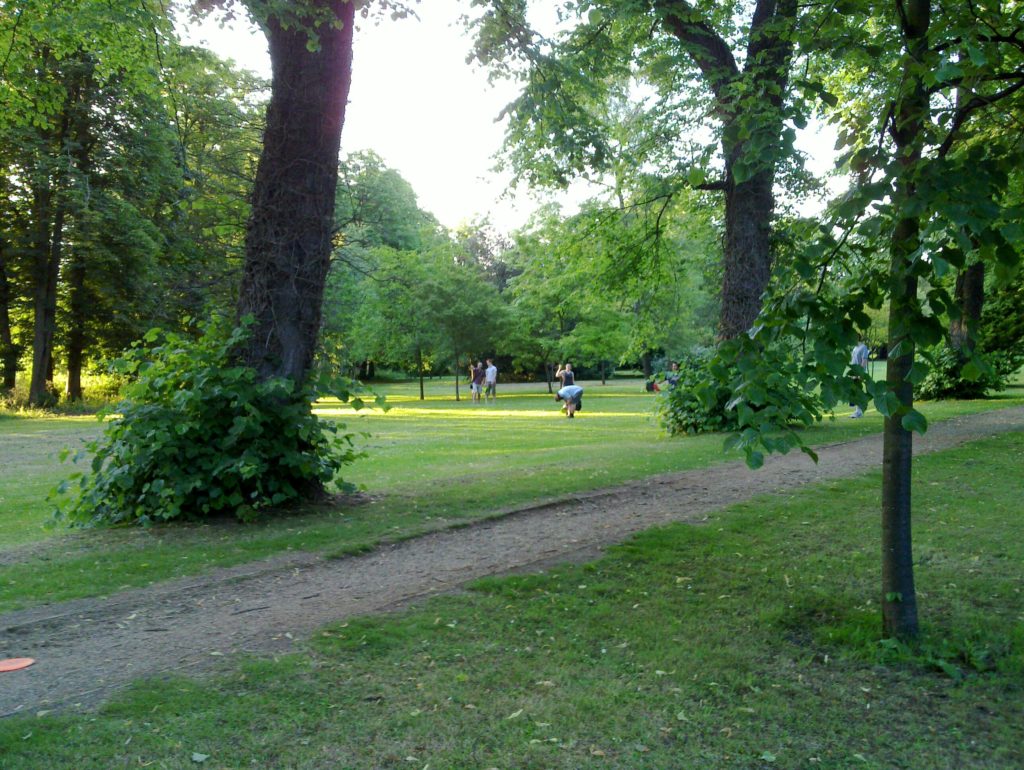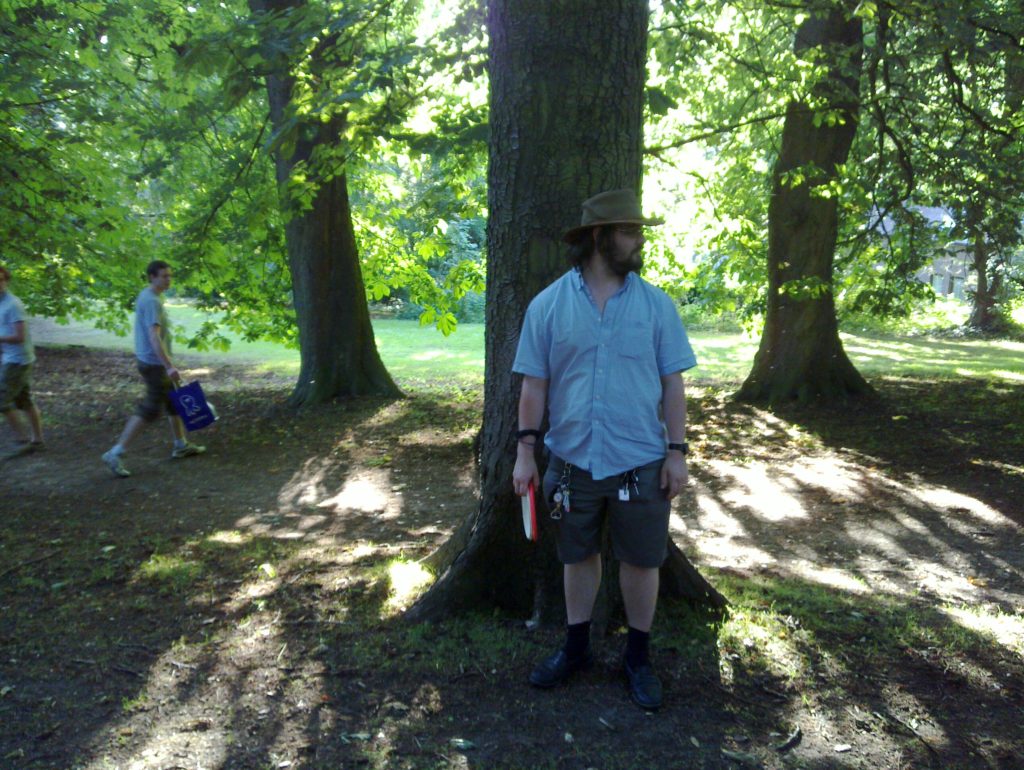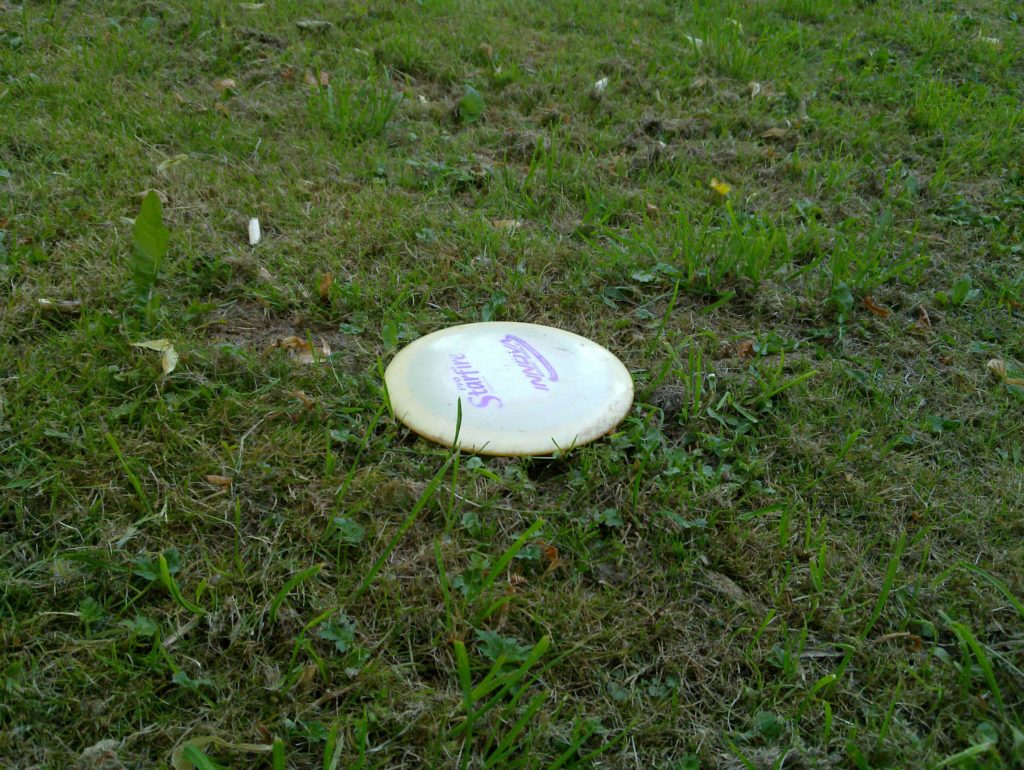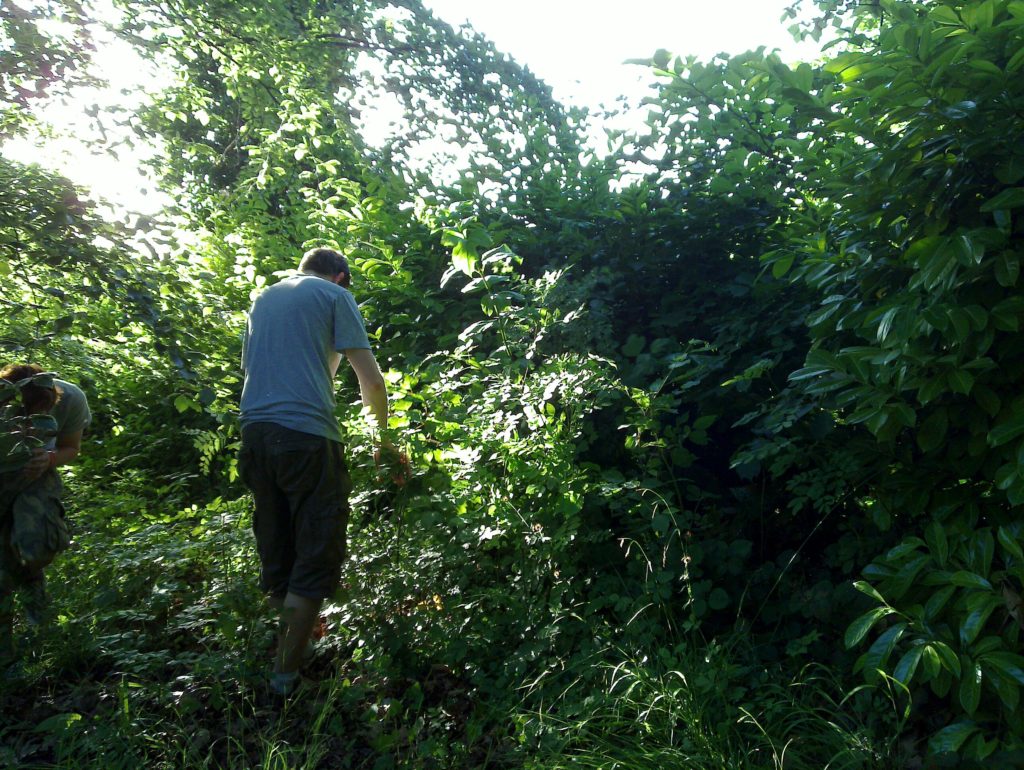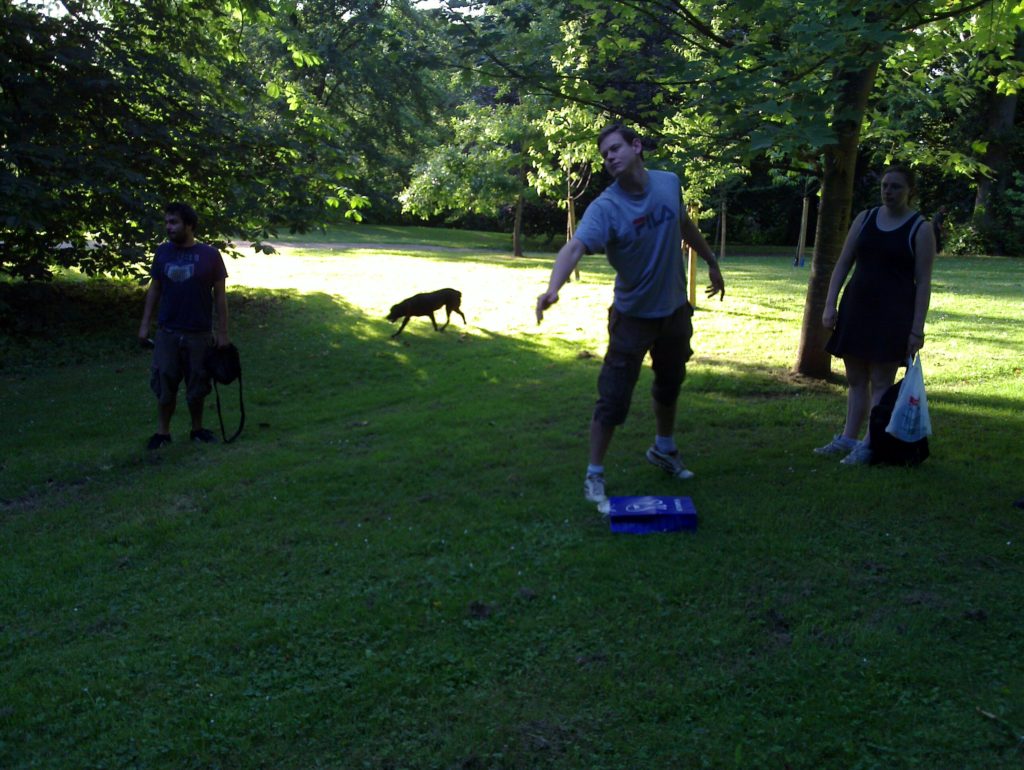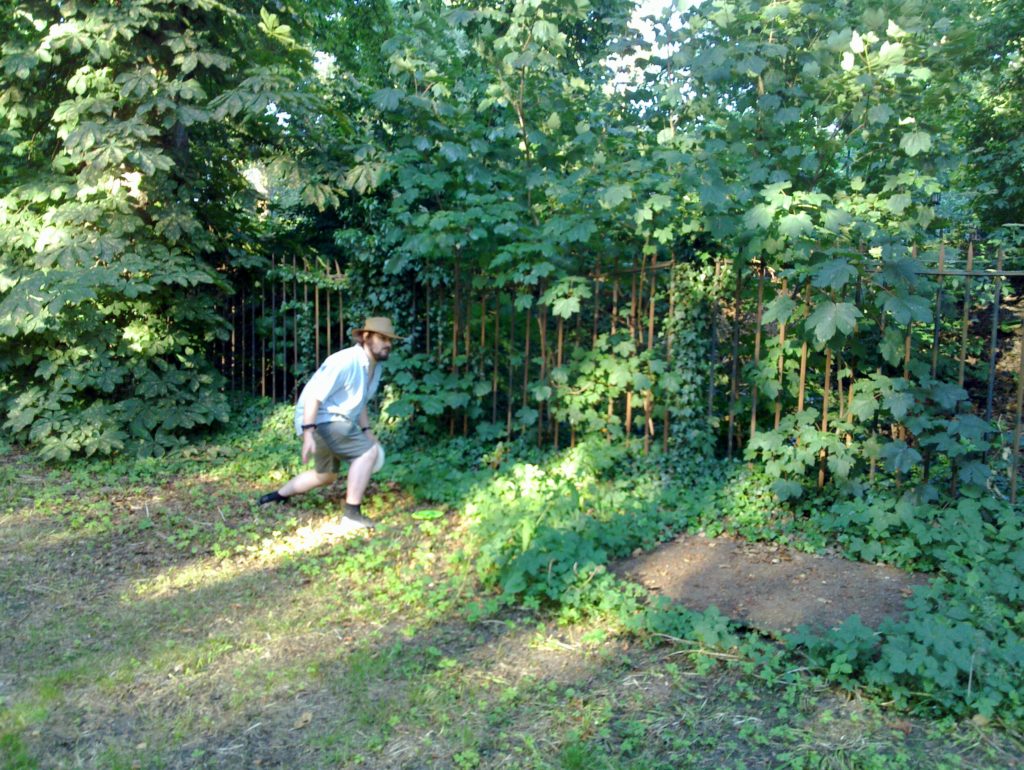After moving to Earth, one of the things I thought might be fun was to use the excuse of being in a new place to try out some new things. A quick Google around the area uncovered OxDisc, the local Disc Golf society, who meet once or twice a week in a park less than half an hour’s walk from my house. Given that all I knew about disc golf I learned from the summary at the top of the Wikipedia page for the sport, I knew… well, basically nothing except that it was like golf, only with a frisbee and target rather than a ball and cup.
Accompanied by Ruth and JTA, who I’d somehow persuaded to join me, I set out to try to meet some strangers in a park. Having only spoken to anybody associated with the group online (all of whom subsequently turned out to be on holiday or otherwise unavailable), all we knew was vaguely where we were headed and that we were looking for a guy called George: sure, no problem – how hard can that be?
Luckily, it turned out to be reasonably easy to find our contact: once we were in the vicinity, all we had to do was look for the guy carrying a bag full of frisbees. Here came my first surprise: players don’t use just one disc. Three is pretty much a minimum – a long-range, high-speed “driver”, an easier to control but still pretty fast “approach disc” (or “mid-range”), and a slow “putter”. Only the putter looked like any kind of frisbee I’d ever thrown before: the others looked more like a rubber discus that had been given a lip to make it throwable in the same way as a frisbee is. George lent us each a set of three discs, explaining some of the differences between them. Professional players can be found carrying a variety of different drivers with different weights (and weight distributions) to make them tend towards understability or overstability or be more or less suitable for hyzer, anhyzer, forehand, elevator, and other varieties of throw. Yes, they have their own lingo: and I thought that this would be like throwing a frisbee around a park.
We teed off on the first hole of one of the courses that the group sometimes take around the park: markers like a protruding tree root or a gap between a path and a tree marked the tees, and the targets were all particular trees. Some of the courses were set up such that it was actually impossible to see the target from the tee as a result of the intervening trees, and so – without a profound knowledge of the course nor the sport – I had to fall back on a strategy of “throwing it sort-of in the right direction” as best I could and hoping.
Needless to say, my very first throw was a disaster. Unfamiliar with the unusual weight balance of the faster discs (some of which were “overbalanced”; that is, if you throw backhand using your right arm, as most people normally throw a frisbee, it will tend towards the left given an even spin and a level takeoff… are you following all of this? I certainly wasn’t), I was doomed to balls up my first throw… it rocketed forwards and then suddenly flew off to the left, diving deep into a forest of waist-high nettles. About 30 seconds later, I began to really regret choosing to wear shorts for this particular adventure, as my lower legs were rapidly becoming a mass of nettle stings.
Some of the other folks were obviously far, far more accomplished than any of us. Several times, we saw frisbees thrown end-on, like darts, flicked into the air where somehow they’d magically stabilise at exactly the right height to clear a particular obstacle. On a few occasions, the other players would fling their discs in physics-bending ways, turning right to avoid an obstacle then slowing down and turning left to clear the other side of it. Once, I even got to watch a guy deliberately throw his frisbee upside-down in order to “skim” it under a bush and right up to the target tree!
I was pleased with myself that by the end, I could generally throw the mid-range approach disc in a vaguely straight line, some of the time, and that once, I managed to pull off a hook shot up and over (and around) an inconveniently-placed copse, landing the frisbee almost exactly where I wanted it. But just the once, mind.
JTA seemed to pick up the sport pretty quickly, and on the long straight sections easily outperformed me (although I think I had more accurate “putting” ability). Ruth had somewhat more difficulty: the difficulties with her wrists left her unable to “snap” the disc out of her hand, which resulted in far slower throws. Nonetheless, we all had a good time and we’re talking about going along again… right as soon as we’ve had the chance to get a bit of practice in, so we don’t look like quite such wallies!
At the end of the evening, we were surprisingly more well-exercised than we expected (considering that it’s a sport of 5% throwing, 95% walking), and enjoyed the opportunity to calorie-up on ale and crisps at a nearby pub before making the trek home in the sticky warmth of the low sun.
